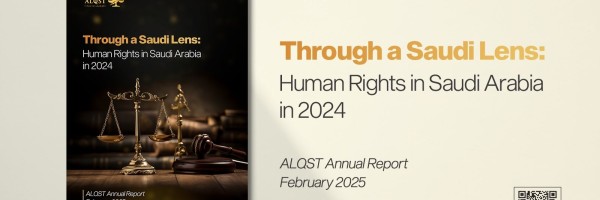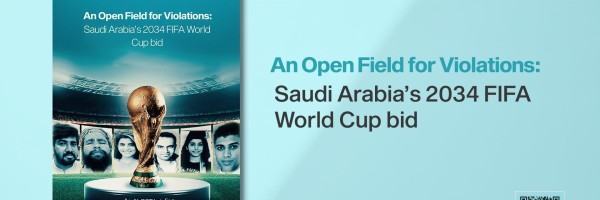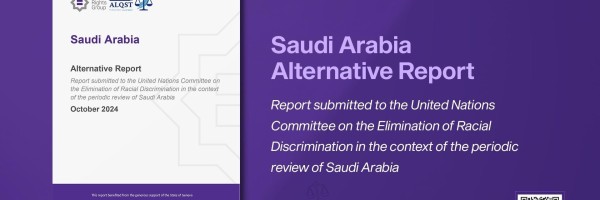At a time of deepening repression in Saudi Arabia, where de facto ruler Mohammed bin Salman seems emboldened by the world’s failure to sanction him for having a dissident journalist assassinated, ALQST presents A Soft Touch? Human Rights and the UK-Saudi Relationship, a position paper on the United Kingdom’s relations with Saudi Arabia and the potential to use its close ties with Riyadh much more robustly to prevent abuses and promote respect for human rights.
Introduction
At a time of deepening repression in Saudi Arabia, where de facto ruler Mohammed bin Salman seems emboldened by the world’s failure to sanction him for having a dissident journalist assassinated, ALQST presents this position paper on the United Kingdom’s relations with Saudi Arabia and the potential to use its close ties with Riyadh much more robustly to prevent abuses and promote respect for human rights.
ALQST is an independent non-governmental organisation based in London that has been monitoring and reporting on human rights in Saudi Arabia since 2014.1 With civil society within the kingdom effectively silenced, ALQST has sought to fill the void by acting as a bridge between Saudi activists on the ground and the outside world community.
Crucial to this mission is the fact that the Saudi authorities are, perhaps surprisingly, susceptible to international pressure, which when applied sufficiently and in coordinated fashion can lead to human rights concessions on the ground. Conversely, when outside pressure is relaxed the Saudi leadership reverts to its repressive ways with a sense of impunity, as we have been seeing once again in recent months.
As a close ally of Saudi Arabia, the UK has considerable diplomatic leverage with which to press the Saudi authorities over human rights concerns. However, it has not always used this to the full extent possible, and it has not been transparent about the nature and terms of the relationship between London and the authoritarian rulers in Riyadh.
The visit of then-Prime Minister Boris Johnson to Saudi Arabia in March this year, despite the mass execution of 81 individuals only days before, marked a significant milestone in the gradual diplomatic rehabilitation of Crown Prince Mohammed bin Salman following months of frostiness since the state-sponsored murder of Jamal Khashoggi in October 2018. In July 2022, US President Joe Biden also visited Saudi Arabia and French President Emmanuel Macron hosted Bin Salman in Paris.
Since then, there has been an extraordinary renewed clampdown on freedom of expression in the kingdom, with a series of jail sentences of up to 50 years being handed down for peaceful social media activity, including a 34-year sentence for Leeds University PhD student and mother of two Salma al-Shehab.
As is often said by government officials, we are dealing in a world where we have to make difficult decisions. The UK has a legitimate interest in trading internationally and securing energy supplies. However, ALQST believes that human rights should be at the heart of the UK’s relationships with foreign governments, for their mutual benefit and the common good.
There is undoubtedly a role for quiet diplomacy, but there is much more the UK could do, and do openly – on its own and multilaterally – from speaking out in support of Saudi human rights defenders to halting arms sales and spyware to Saudi Arabia so long as that country continues to wage war and commit breaches of International Humanitarian Law (IHL) in Yemen. By doing so it will advance both British values of democracy and human rights, and, ultimately, long-term UK interests.




